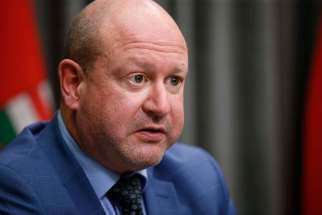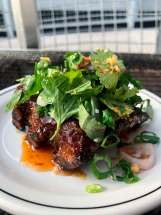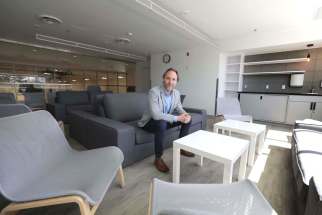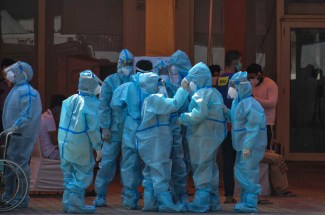Opening is ‘not the finish line, it’s the start’ Former addict on launch of treatment centre: 'Our province just got healthier'
Read this article for free:
or
Already have an account? Log in here »
To continue reading, please subscribe:
Monthly Digital Subscription
$0 for the first 4 weeks*
- Enjoy unlimited reading on winnipegfreepress.com
- Read the E-Edition, our digital replica newspaper
- Access News Break, our award-winning app
- Play interactive puzzles
*No charge for 4 weeks then price increases to the regular rate of $19.00 plus GST every four weeks. Offer available to new and qualified returning subscribers only. Cancel any time.
Monthly Digital Subscription
$4.75/week*
- Enjoy unlimited reading on winnipegfreepress.com
- Read the E-Edition, our digital replica newspaper
- Access News Break, our award-winning app
- Play interactive puzzles
*Billed as $19 plus GST every four weeks. Cancel any time.
To continue reading, please subscribe:
Add Free Press access to your Brandon Sun subscription for only an additional
$1 for the first 4 weeks*
*Your next subscription payment will increase by $1.00 and you will be charged $16.99 plus GST for four weeks. After four weeks, your payment will increase to $23.99 plus GST every four weeks.
Read unlimited articles for free today:
or
Already have an account? Log in here »
Hey there, time traveller!
This article was published 10/05/2021 (1686 days ago), so information in it may no longer be current.
Like Bruce Oake, Johnathan Parker needed help for his drug addiction.
But Parker, who is 39 and has been sober for a decade, had to go out of province for long-term residential treatment. It helped him break out of the cycle that began when he started abusing alcohol at age 13. By 18, he was using cocaine and other drugs.
Parker, who sits on the board of the soon-to-open Bruce Oake Treatment Centre in the former Vimy arena, said he wishes the facility had been around when he needed it.
“When someone is ready to make the choice to get sober, that’s when they have the biggest hope,” he said.
“I grew up in St. James and if it had been in my community then, I would have got thinking about treatment. I had friends in Crestview and I played hockey in that rink.
“The fact that I’m still here and didn’t die is a miracle.”
He got sober the same year that Oake’s addictions ended his life. He died of a heroin overdose when he was 25.
In less than three weeks, but after years of persuasion, sweat, fundraising and educating upset neighbours, the treatment centre will welcome its first residents.
As many as 50 residents at a time will be able to get the long-term treatment they need to survive.
“When someone is ready to make the choice to get sober, that’s when they have the biggest hope.” – Johnathan Parker
Oake was the eldest son of Scott, a CBC sportscaster and Hockey Night in Canada host, and his wife, Anne. He started taking drugs in high school and, by his early 20s, his parents had to get him in a long-term treatment program.
Oake stayed in the program for a year, but relapsed. He got back in, but a few months later he failed a drug test and had to leave the program.
He died a week later.
To honour his memory, the Oakes began working on a plan to create a treatment centre in Winnipeg, modelled after the program used at the Fresh Start Recovery Centre in Calgary.
The city had decommissioned the arena on Hamilton Avenue in Crestview, and was willing to sell it for $1. City council later approved the sale and the necessary zoning change against the wishes of some residents of the neighbourhood, who said they wanted to preserve recreation space in the area.
Some admitted they had fears the centre would attract crime and reduce property values.
“We know treatment is not just about using substances and alcohol and other drugs, it is building a foundation for life.” – Greg Kyllo, the centre’s executive director
During the $16-million fundraising campaign in 2019, construction crews moved in to begin transforming the building.
The COVID-19 pandemic has been responsible for postponing or cancelling all kinds of projects, but it didn’t affect construction of the treatment centre, which will be finished months before the planned fall opening.
Scott Oake said opening the doors is only the beginning.
“It’s what I always say — it’s not the finish line, it is the start line,” said Scott. “This is the point where we start saving lives.”
He said he wishes it could have opened a year ago.
“This pandemic shows how much it is needed,” he said. “We had 377 overdose deaths in 2020. That’s an average increase of 85 per cent from 2019, and much of it was due to the pandemic and the isolation that has come with it.”
“This is the point where we start saving lives.” – Scott Oake
He said there will be high demand to get into the 16-week program for men.
“We don’t need one centre, we need two or three,” he said, adding women will be offered treatment on an outpatient basis, but he’s already thinking about a second facility.
“A lot of women are reluctant to go to recovery because they are worried they’ll lose their kids,” he said. “Our centre would have a daycare with it.
“We’re fully prepared to stay at this.”
The 32,000-square-foot Bruce Oake Treatment Centre features 25 bedrooms, a gym and smudging room, a kitchen and a dining room.
Greg Kyllo, the centre’s executive director, says the plan is to admit people gradually.
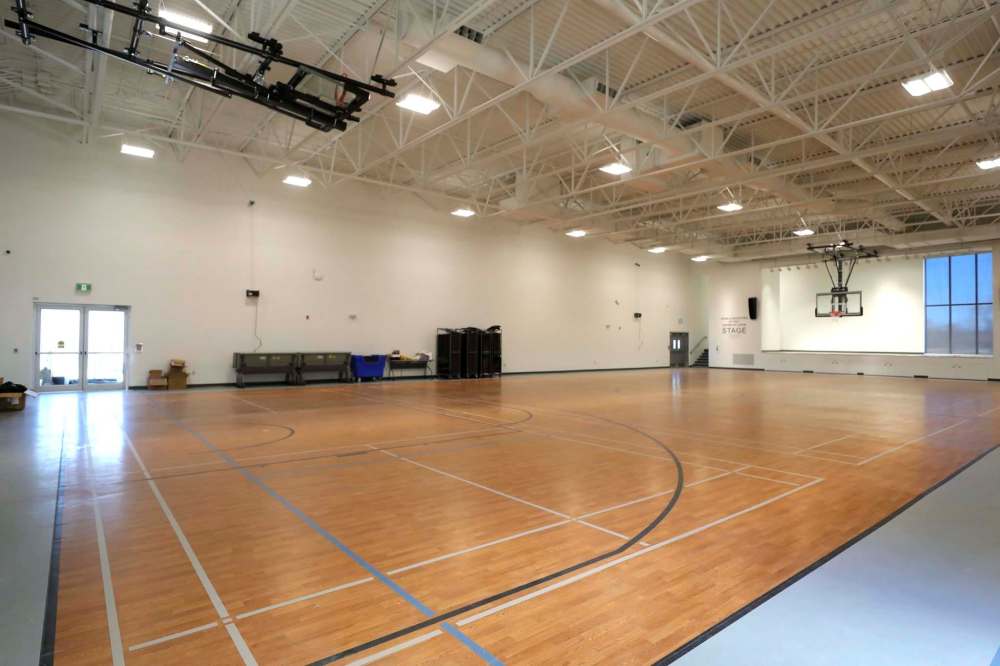
“We will be bringing them in in groups,” said Kyllo, adding the first residents will have rooms to themselves, but later, when the centre is at capacity, new arrivals will room with someone who has been there for a while, who’ll serve as a mentor.
Kyllo said residents will get help finding employment and affordable housing before they finish the program.
“We know employment is key to long-term success,” he said. “We’ll help people who want to work. We know treatment is not just about using substances and alcohol and other drugs, it is building a foundation for life.”
And treatment will continue after residents move out to help with the transition back into the community, he said.
As for Parker, now a top executive with a national auto sales company, he is glad to be able to give back to the people who are following in his footsteps to recovery.
“Words can’t describe what this will do for people in the community,” he said. “Our province just got healthier. I grew up in St. James in a middle-class family and had a great upbringing and I ended up a drug addict and an alcoholic.
“It can happen to anyone.”
kevin.rollason@freepress.mb.ca
Raising money
The treatment centre is close to its $16-million capital campaign goal.
“We are keeping the capital campaign open in case there are people who prefer to donate to capital instead of operational costs,” said Scott Oake.
They are focusing on raising money for people who can’t afford treatment, through its $1-million Save A Life Campaign.
To help either campaign, go to https://www.bruceoakerecoverycentre.ca/donate. Tax receipts will be mailed for donations of $20 or more.

Kevin Rollason is a general assignment reporter at the Free Press. He graduated from Western University with a Masters of Journalism in 1985 and worked at the Winnipeg Sun until 1988, when he joined the Free Press. He has served as the Free Press’s city hall and law courts reporter and has won several awards, including a National Newspaper Award. Read more about Kevin.
Every piece of reporting Kevin produces is reviewed by an editing team before it is posted online or published in print — part of the Free Press‘s tradition, since 1872, of producing reliable independent journalism. Read more about Free Press’s history and mandate, and learn how our newsroom operates.
Our newsroom depends on a growing audience of readers to power our journalism. If you are not a paid reader, please consider becoming a subscriber.
Our newsroom depends on its audience of readers to power our journalism. Thank you for your support.
History
Updated on Tuesday, May 11, 2021 6:45 AM CDT: Adds quotation marks to headline




